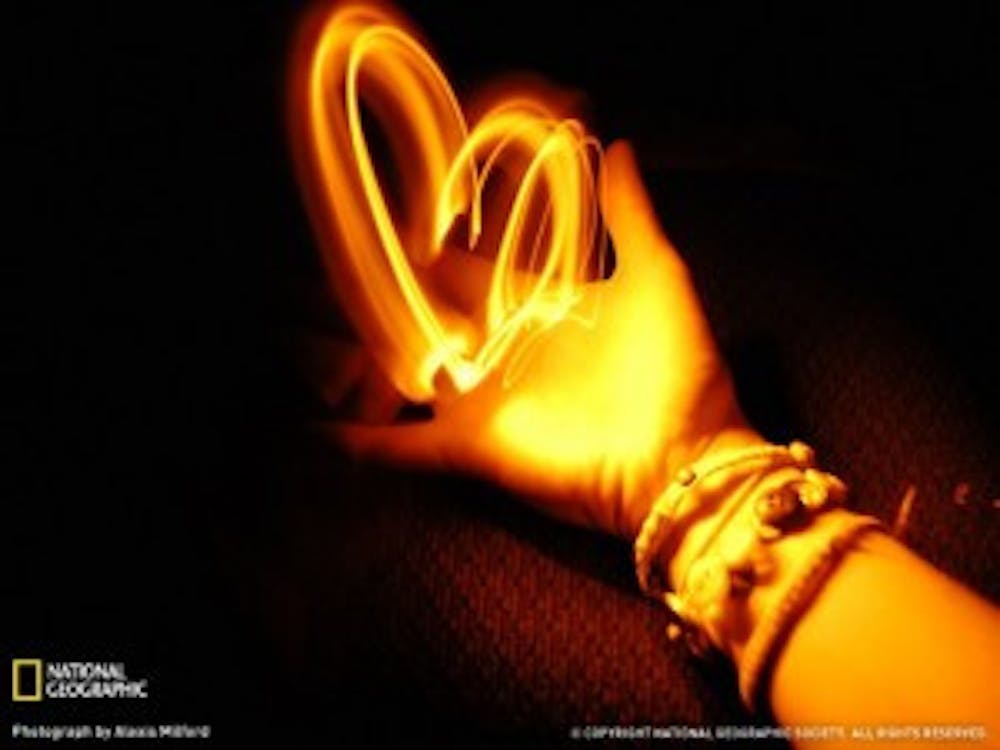Today is Valentine’s Day, so it only seems appropriate to talk about one thing: love. Our society enjoys talking about love, researching love and making Hallmark cards expressing love. But what exactly is love?
Our society likes that question, too. Anyone who has walked through the Plaza of the Americas recently has probably noticed a table set up asking just that: What is love? Individuals seem to have their own idea of exactly what it means to love or be loved. In a study that asked both children and adults about their ideas on love, adults responded with things such as “when you can’t live without someone,” or “putting someone above yourself.” Children, on the other hand, responded that you are in love when “your eyelashes go up and down and little stars come out of you,” or when “you tell a guy you like his shirt, and he wears it every day.”
In their book “Character Strengths and Virtues,” psychologists Martin E.P. Seligman and Christopher Peterson take a more methodical approach and describe three different types of love, prototyped by the following:
- Children’s love of their parents- people who give us comfort and help
- Parents’ love for their children- people who depend on us
- Romantic love- people who we idealize, downplaying their faults
Hallmark cards tend to focus on number three, romantic love, but many psychologists suggest that there is more to love than just romance. How many times have you said “I love you” to a close friend, while not feeling romantically attached to him or her? We also feel intimate connections toward family members. The love I feel toward my little sister has endured through all of our disagreements over the past 18 years, though my love for her is obviously quite different from the love I feel for a boyfriend.
Researchers are also curious about the biology of love. Anthropologist Helen Fisher has studied romantic love for 30 years. In one of her studies, she put people in a brain scanner and showed them pictures of the person they love. While looking at their partner, the participant’s brains showed activity in the region involved with the reward system. This part of the brain is also activated when you feel the rush of cocaine. So Ke$ha actually has a point when she repeatedly claims that, “Your love is my drug.”
So go ahead and shower your beloved with flowers, chocolate and cards, but don’t forget about the abundance of love in your life outside of romantic relationships. Call up your friends, parents and siblings and let them know they are loved as well!






